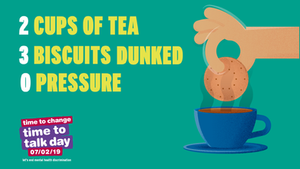School related stress among children
- Jul 27, 2015
- 2 min read
There seems to be numerous reports in the press currently about young people and their mental health and wellbeing. For example a report from the National Union of Teachers states "the pressure from continual exams and tests is causing unprecedented levels of anxiety, stress and mental health problems among children."**
Another study by the Association of Colleges of 127 colleges stated that "75% of the colleges responded had seen an increase in students with undisclosed mental health difficulties such as depression, anxiety and self-harm"** Concerning statistics.
With this in mind and the summer holidays now in full swing, think about the amount of "down time" our young people are actually getting and just how important it is for them and their mental wellbeing; just how much it is needed although some parents may disagree for various reasons!
New school term, new anxieties Mindfulness is now being taught in some schools, a really useful skill to learn for all aspects of life especially for exam season. September, for some may be a new period of anxiety to face, transitions to secondary school, the start of GCSE or A'Level year, the beginning of university life. However for now, in August, how much time are our young people getting to "just be"? To just hang out with friends, to just be outside away from electronic devices, walking, bike riding, climbing trees, building sand castles, whatever they feel they want to do, to just be young?
The importance of down time in the school holidays For mental and emotional wellbeing, having the chance to switch off, be away from the pressures of school, college, university are really needed to feel refreshed, revitalised and relaxed both physically and emotionally. To recharge the batteries for September can only be positive for facing the challenges that a new term brings. This is not to say by any means that the holidays will sort all mental health difficulties, but they will certainly provide a much needed break, to relieve the stress and anxiety, the increasing number of our young people have been dealing with.
** cited in Therapy Today July 2015








Comments